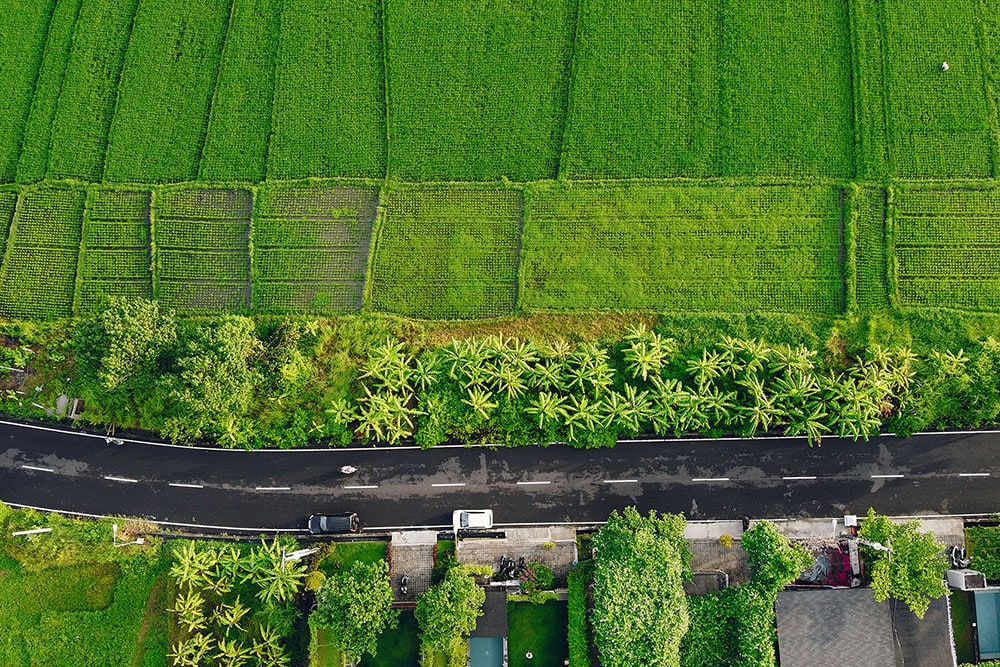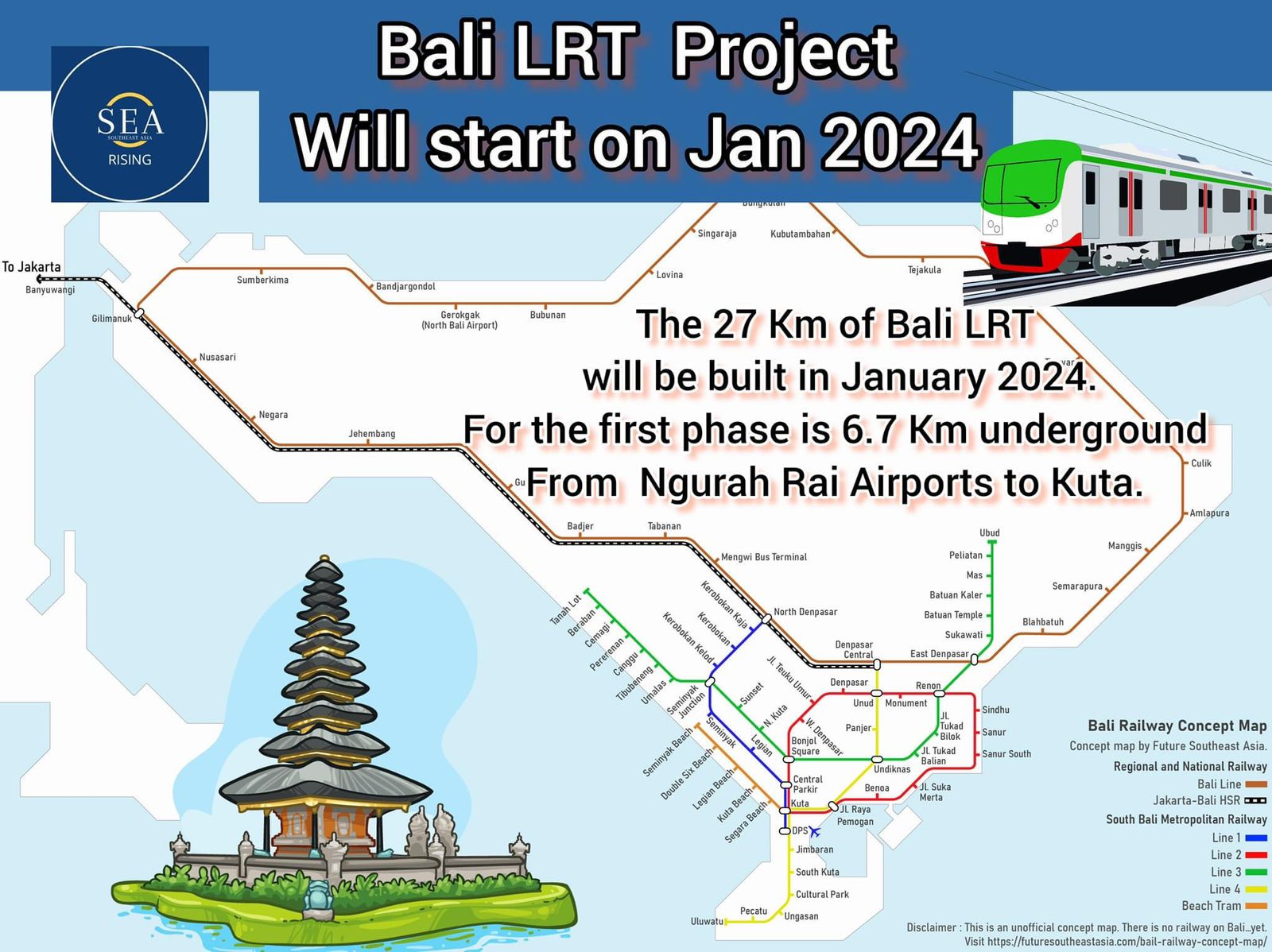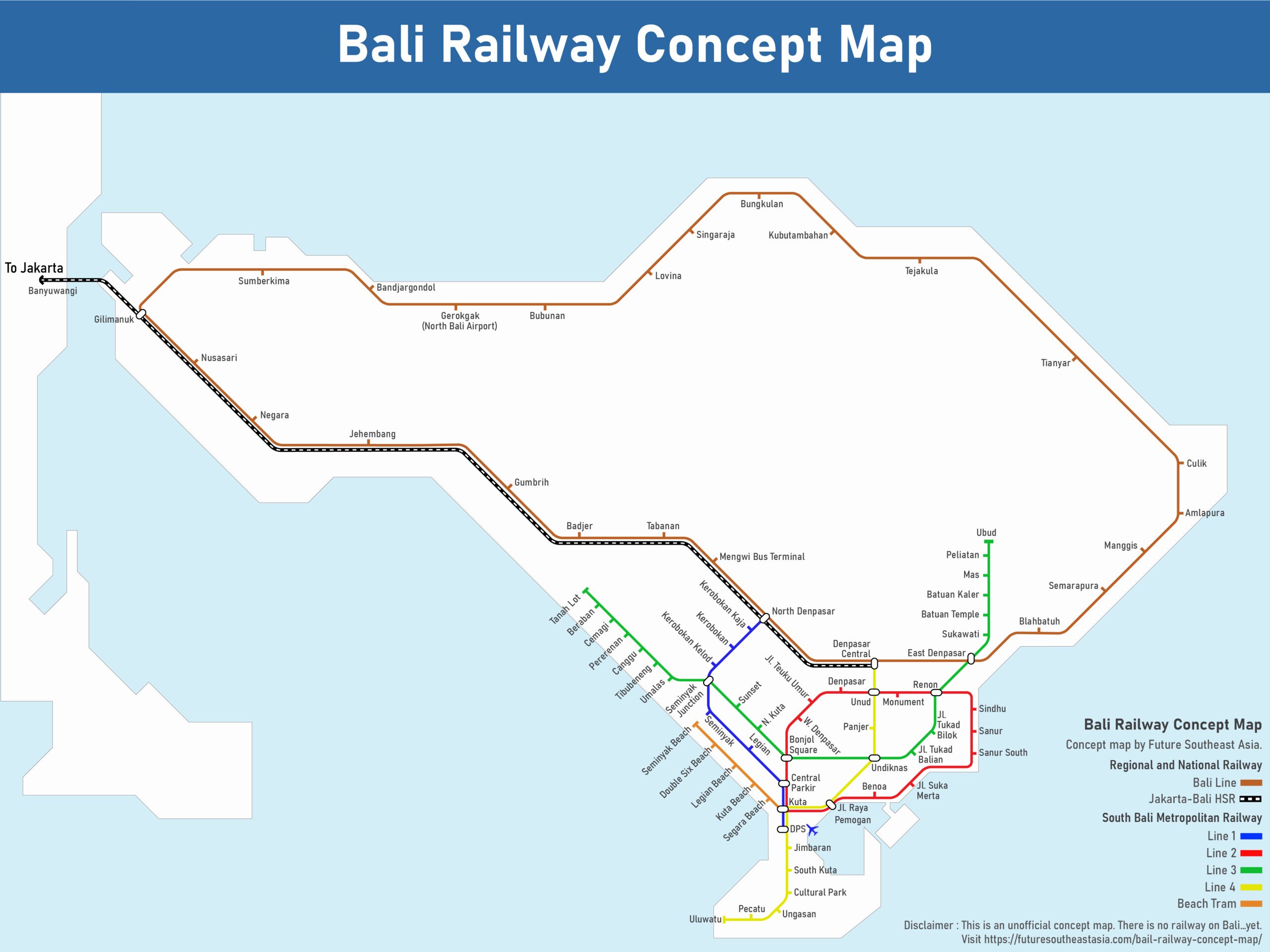The impending Light Rail Transit (LRT) project in Bali, slated to commence construction in 2024, holds the promise of not just revolutionizing transportation but also significantly impacting the real estate sector. As the project focuses on enhancing connectivity and accessibility, particularly in areas targeted by the LRT, there is potential for a positive ripple effect on Bali’s real estate, notably in regions along the proposed route.
Improved Accessibility and Property Values:
One of the most evident impacts of the LRT project on the real estate market is likely to be the increase in property values. The enhanced connectivity provided by the LRT, linking Ngurah Rai Airport to Kuta, Seminyak, and potentially Canggu, is expected to make these areas more attractive to residents, businesses, and tourists. As accessibility improves, property values in proximity to LRT stations and along the route may experience an upward trend.

Commercial and Tourism Boost:
Areas served by the LRT are poised to become hotspots for commercial and tourism-related developments. Improved connectivity often attracts businesses seeking strategic locations and tourists looking for convenient travel options. Commercial establishments, hotels, and entertainment venues along the LRT route could experience heightened demand, positively impacting the local real estate market.
Shift in Demand Patterns:
The introduction of the LRT may lead to a shift in demand patterns within the real estate sector. Areas that were previously considered on the outskirts may witness increased interest due to their newfound accessibility. Conversely, as certain areas become more connected, there might be a redistribution of demand within the region. Investors and homebuyers may reassess their preferences based on the LRT’s impact on travel times and convenience.
Challenges and Considerations:

While the overall impact appears promising, challenges and considerations should not be overlooked. Construction phases could temporarily disrupt local real estate activities. Additionally, the potential for increased property values might pose affordability challenges for some segments of the population. Balancing the positive impacts with potential challenges will be crucial for ensuring sustainable development.
Opportunities for Real Estate Development:
The LRT project also presents opportunities for real estate agency in bali to capitalize on the anticipated growth. Strategic land acquisitions near LRT stations or proposed extensions could lead to the development of new residential or commercial projects. Developers who align their projects with the evolving needs of the community and the anticipated influx of visitors stand to benefit.

In conclusion, the LRT project in Bali has the potential to reshape the real estate landscape in targeted areas. While challenges exist, the overall outlook suggests positive growth, improved connectivity, and increased property values. Stakeholders in the real estate sector should proactively adapt to the changing dynamics, leveraging the opportunities presented by this transformative transportation initiative.

